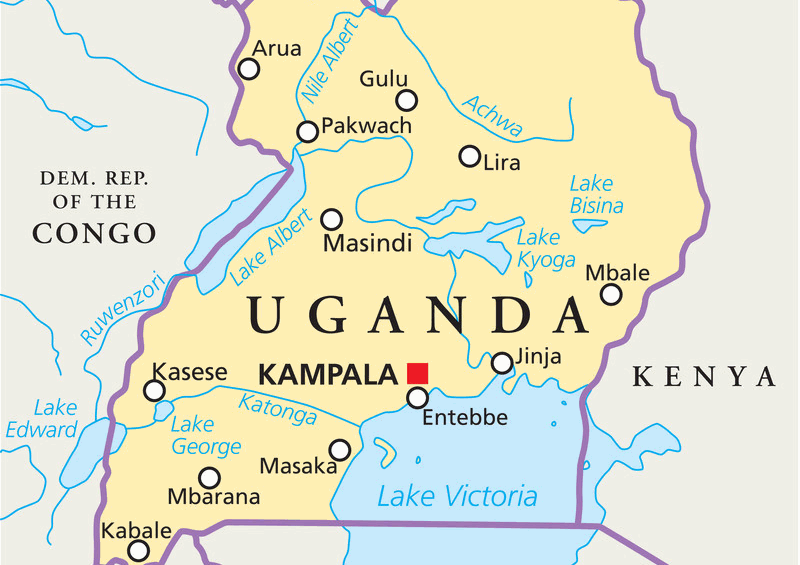
The Bank of Uganda on Friday, April 8, 2022, revealed that the country’s exports to South Sudan hit a record high in 2021/2022 fiscal year.
According to the Daily Monitor, Uganda’s exports to South Sudan were more than its exports to Kenya during the same period.
Uganda’s exports to South Sudan are said to have increased to $503.3 million for the year ended February 2022, from $353.9m for the period ended February 2021, which represented a percentage growth of 33 percent.
In other words, South Sudan’s economy lost 216.8 billion South Sudanese pounds in the same period using an exchange rate of $430.83 to a dollar.
This is because South Sudan’s recent budget tabled by the Minister of Finance and Planning was SSP 287 billion for the fiscal year 2021/2022.
This simply means South Sudan spends nearly 76% of its budget on imports, but it exports crude oil to the international market.
It also exports some goods to Uganda, including gold, scrap iron, and pesticides to Uganda and neighboring countries.
Ugandan’s Central bank breakdown is as follows, $32m for Sugar, $28.1m for cereal flours, and $27.6m for cement.
Economically, South Sudan remains vulnerable to several shocks, worsened by high levels of poverty and food insecurity, which stands at about 80 percent.
The country has also been hit by severe flooding in the last few months, killing livestock, destroying food stocks, and damaging crops ahead of the main harvest season.
In February alone, Uganda’s exports to South Sudan were at a record high averaging $50.6m or SSP 21.8 billion at SSP 430.83 per a US dollar.
Dr. Adam Mugume, the Bank of Uganda director for research was quoted by the Daily Monitor as saying that South Sudan’s export performance was not out of range, noting that South Sudan was benefiting from an increase in international oil prices thus augmenting demand for imports.
Meanwhile, Dr. Fred Muhumuza, an economist and a lecturer of economist at Makerere University, warned that the increase could be seasonal.
He attributed the increase to happenings supported by the reopening of most economies within the region,
South Sudan is generally an import-dependent county. It imports cereals, maize, wheat flour, sugar, vegetable oils, beer, soft drinks, iron, steel, cement, and motor vehicles among others.
In addition, South Sudan is also a landlocked country and it remains vulnerable to several shocks, worsened by high levels of poverty and food insecurity as a result of a repeated conflict
This year, South Sudan was hit by severe flooding destroying livelihoods such as livestock, and food stocks, and damaging crops ahead of the main harvest season.
In 2019, South Sudan was ranked worst in the economic cost of violence, measured at 17% of GDP, plus an overall economic impact estimated at around $15.2 billion in East Africa.
Experts have repeatedly called for structural and institutional reforms to address the country’s economic woes.
In October last year, the International Crisis Group revealed that South Sudan was a middle-income economy at its independence in 2011.
In a 42-page report, the group showed that the young nation had a higher gross domestic product or GDP per capita of $1,516 – making it the largest economy compared to its neighbors – Kenya, Uganda, and Sudan.
Per capita, gross domestic product measures a country’s economic output per person and is calculated by dividing the GDP of a country by its population.
South Sudan’s population is estimated to be 12 million people.
The report further showed that South Sudan’s total annual oil revenues were estimated to be between $800 million and $1 billion in the 2020-2021 budget, prepared by the Ministry of Finance and Planning.
However, the 2013 conflict, two years after independence, has weakened the economy and the country’s currency against the world’s major currencies.
Currently, civil servants spend months without pay with many developmental projects being put on hold as a country struggle to rebuild its economy
To revise the economy, the International Crisis Group urged South Sudanese reform-minded and international partners to focus on financial reforms and ensure oil revenues are deposited in a single account.
Support Eye Radio, the first independent radio broadcaster of news, information & entertainment in South Sudan.
Make a monthly or a one off contribution.
Copyright 2024. All rights reserved. Eye Radio is a product of Eye Media Limited.